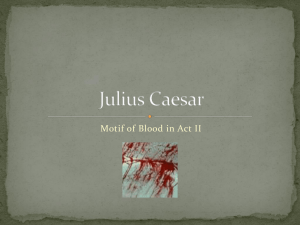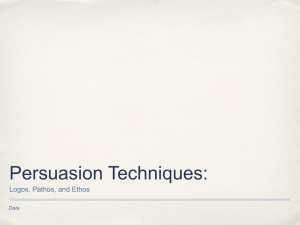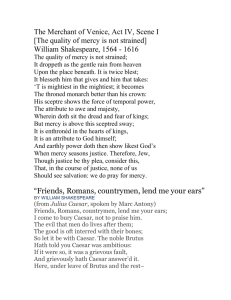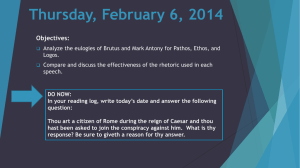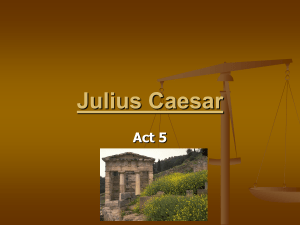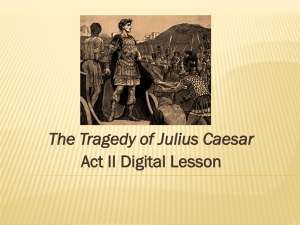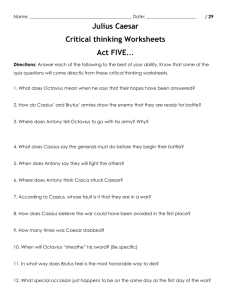General Summary of Julius Caesar
advertisement
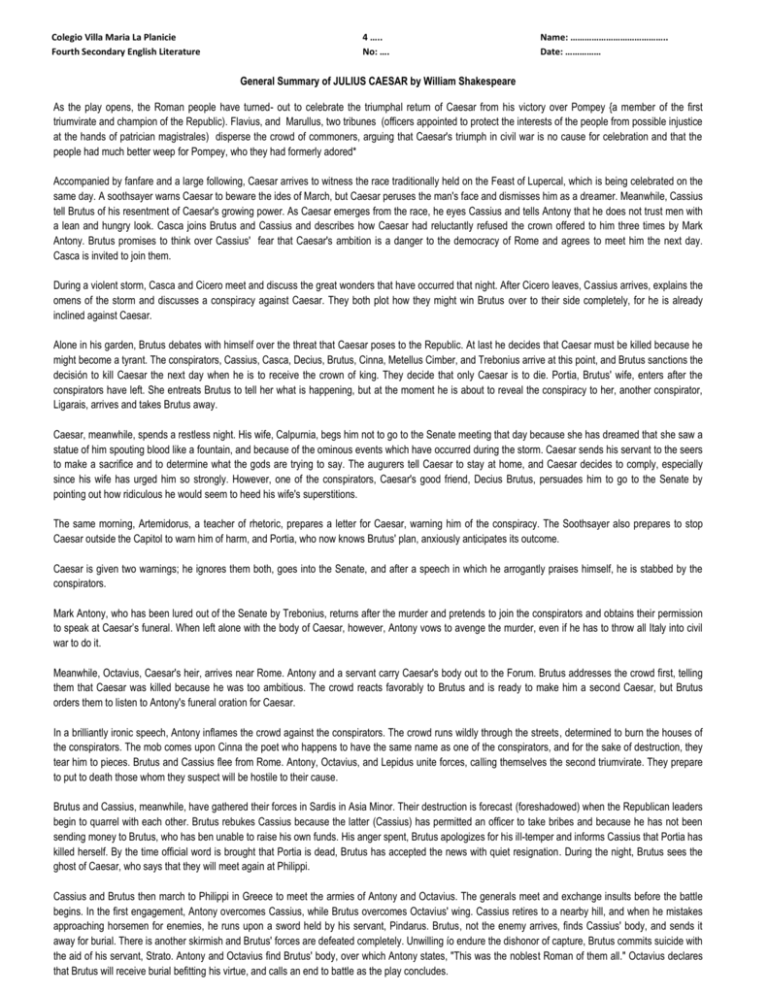
Colegio Villa Maria La Planicie
Fourth Secondary English Literature
4 …..
No: ….
Name: …………………………………..
Date: ……………
General Summary of JULIUS CAESAR by William Shakespeare
As the play opens, the Roman people have turned- out to celebrate the triumphal return of Caesar from his victory over Pompey {a member of the first
triumvirate and champion of the Republic). Flavius, and Marullus, two tribunes (officers appointed to protect the interests of the people from possible injustice
at the hands of patrician magistrales) disperse the crowd of commoners, arguing that Caesar's triumph in civil war is no cause for celebration and that the
people had much better weep for Pompey, who they had formerly adored*
Accompanied by fanfare and a large following, Caesar arrives to witness the race traditionally held on the Feast of Lupercal, which is being celebrated on the
same day. A soothsayer warns Caesar to beware the ides of March, but Caesar peruses the man's face and dismisses him as a dreamer. Meanwhile, Cassius
tell Brutus of his resentment of Caesar's growing power. As Caesar emerges from the race, he eyes Cassius and tells Antony that he does not trust men with
a lean and hungry look. Casca joins Brutus and Cassius and describes how Caesar had reluctantly refused the crown offered to him three times by Mark
Antony. Brutus promises to think over Cassius' fear that Caesar's ambition is a danger to the democracy of Rome and agrees to meet him the next day.
Casca is invited to join them.
During a violent storm, Casca and Cicero meet and discuss the great wonders that have occurred that night. After Cicero leaves, Cassius arrives, explains the
omens of the storm and discusses a conspiracy against Caesar. They both plot how they might win Brutus over to their side completely, for he is already
inclined against Caesar.
Alone in his garden, Brutus debates with himself over the threat that Caesar poses to the Republic. At last he decides that Caesar must be killed because he
might become a tyrant. The conspirators, Cassius, Casca, Decius, Brutus, Cinna, Metellus Cimber, and Trebonius arrive at this point, and Brutus sanctions the
decisión to kill Caesar the next day when he is to receive the crown of king. They decide that only Caesar is to die. Portia, Brutus' wife, enters after the
conspirators have left. She entreats Brutus to tell her what is happening, but at the moment he is about to reveal the conspiracy to her, another conspirator,
Ligarais, arrives and takes Brutus away.
Caesar, meanwhile, spends a restless night. His wife, Calpurnia, begs him not to go to the Senate meeting that day because she has dreamed that she saw a
statue of him spouting blood like a fountain, and because of the ominous events which have occurred during the storm. Caesar sends his servant to the seers
to make a sacrifice and to determine what the gods are trying to say. The augurers tell Caesar to stay at home, and Caesar decides to comply, especially
since his wife has urged him so strongly. However, one of the conspirators, Caesar's good friend, Decius Brutus, persuades him to go to the Senate by
pointing out how ridiculous he would seem to heed his wife's superstitions.
The same morning, Artemidorus, a teacher of rhetoric, prepares a letter for Caesar, warning him of the conspiracy. The Soothsayer also prepares to stop
Caesar outside the Capitol to warn him of harm, and Portia, who now knows Brutus' plan, anxiously anticipates its outcome.
Caesar is given two warnings; he ignores them both, goes into the Senate, and after a speech in which he arrogantly praises himself, he is stabbed by the
conspirators.
Mark Antony, who has been lured out of the Senate by Trebonius, returns after the murder and pretends to join the conspirators and obtains their permission
to speak at Caesar’s funeral. When left alone with the body of Caesar, however, Antony vows to avenge the murder, even if he has to throw all Italy into civil
war to do it.
Meanwhile, Octavius, Caesar's heir, arrives near Rome. Antony and a servant carry Caesar's body out to the Forum. Brutus addresses the crowd first, telling
them that Caesar was killed because he was too ambitious. The crowd reacts favorably to Brutus and is ready to make him a second Caesar, but Brutus
orders them to listen to Antony's funeral oration for Caesar.
In a brilliantly ironic speech, Antony inflames the crowd against the conspirators. The crowd runs wildly through the streets, determined to burn the houses of
the conspirators. The mob comes upon Cinna the poet who happens to have the same name as one of the conspirators, and for the sake of destruction, they
tear him to pieces. Brutus and Cassius flee from Rome. Antony, Octavius, and Lepidus unite forces, calling themselves the second triumvirate. They prepare
to put to death those whom they suspect will be hostile to their cause.
Brutus and Cassius, meanwhile, have gathered their forces in Sardis in Asia Minor. Their destruction is forecast (foreshadowed) when the Republican leaders
begin to quarrel with each other. Brutus rebukes Cassius because the latter (Cassius) has permitted an officer to take bribes and because he has not been
sending money to Brutus, who has ben unable to raise his own funds. His anger spent, Brutus apologizes for his ill-temper and informs Cassius that Portia has
killed herself. By the time official word is brought that Portia is dead, Brutus has accepted the news with quiet resignation. During the night, Brutus sees the
ghost of Caesar, who says that they will meet again at Philippi.
Cassius and Brutus then march to Philippi in Greece to meet the armies of Antony and Octavius. The generals meet and exchange insults before the battle
begins. In the first engagement, Antony overcomes Cassius, while Brutus overcomes Octavius' wing. Cassius retires to a nearby hill, and when he mistakes
approaching horsemen for enemies, he runs upon a sword held by his servant, Pindarus. Brutus, not the enemy arrives, finds Cassius' body, and sends it
away for burial. There is another skirmish and Brutus' forces are defeated completely. Unwilling ío endure the dishonor of capture, Brutus commits suicide with
the aid of his servant, Strato. Antony and Octavius find Brutus' body, over which Antony states, "This was the noblest Roman of them all." Octavius declares
that Brutus will receive burial befitting his virtue, and calls an end to battle as the play concludes.



